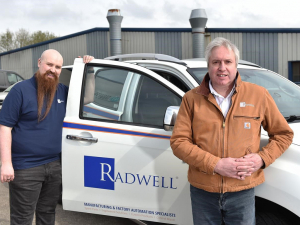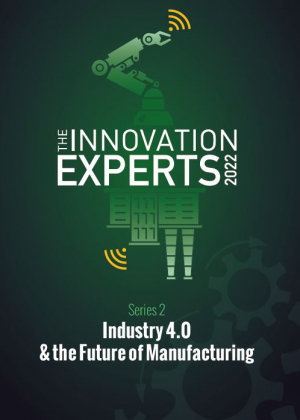What can electronics manufacturers expect in 2019?

With 2019 now well underway, we look ahead to what is predicted to be a year of firsts and a year of uncertainty for some. With Brexit looming, UK regulations could be changing and smarter devices could become more at risk, as Derek Way, managing director at mini printer specialists, Able Systems explains.
Continuing trends
Throughout 2019, we can expect to see some standout trends. A further increase in the use of smart home technology will become apparent as more people vie to have a ‘home of the future’ that becomes multi-functional and operates with little input from the owner. We have already seen the beginning of this with products like Amazon’s Alexa, which can now operate lights, locks and other compatible features of a home – all with a simple vocal instruction.
With online shopping now available at one-click of a button, online distribution will increase across businesses, but for most to make this a real success user experience needs to be considered. If the UX is not efficient, simple and appealing, most products will lose the chance to embrace the online distribution boom, as customers seek ease with online shopping. The significance of this ‘ease’ will become a major factor for every business across the world, as we’re now in a society where we are so accustomed to rewards and results straight away. Therefore, industries must create processes that meet those needs and keep up with a growing demand for instant results and feedback.
Impacting the electronics industry and ‘tech fatigue’
Looking at the wider electronics industry, this year the UK will begin to feel the impact of a stronger influence from the rest of the world through the race for innovation. Although witnessed in previous decades, there is real evidence of an impending chronic shortage of small electrical components. What is perhaps different this time is that the markets that dominate supply, such as smartphone/device manufacturing and the automotive industry, show no signs of exhausting their requirement.
This could easily lead to a domino effect across UK businesses; impacting logistics flexibility and production lead times.
UK electronics manufacturers may also begin to experience the symptoms of a ‘tech fatigue’. This is likely to be compounded through sustained negativity aimed towards technology, with scaremongering expected around why tech isn’t good for our health and wellbeing. As more people perhaps opt to take a hiatus from tech, or purge their lives completely, there could be added pressure to the slowdown in the industry. Apple’s strategy of now incorporating digital wellbeing tools into their tech, to reassure those that are looking to cut down on usage, is an interesting dynamic that is only likely to grow in importance.
As Brexit nears, no one is sure what the future holds for the country and its industries. If implemented, the UK will have to cast new regulations, which could lead to great difficulties in seeking components and speeding up processes. Well-established processes will come to an end and new ones launched, with the knock-on effect of new suppliers and, in all likelihood, more expense.
Efficiency and automation
The Internet of Things (IoT) will become more apparent within our processes as we see Industry 4.0 start to have an impact. Dubbed the ‘fourth industrial revolution’, manufacturing processes will start to make steps towards becoming fully automated and we will start to see factories and production lines that are fully independent and efficient. This will give way to ‘batch size one’ a method of production that ensures no waste or overproduction. As processes become much more sophisticated, manufacturers can become much more cost-effective.
But with the rise of something new, so to comes a new threat. As devices and technology become much more intelligent, with the ability to communicate with other devices - sometimes independently - this could leave the software with a specific vulnerability. The IoT is open to most intrusions, mainly deliberate as an attempt to learn from its own weaknesses. The regulations in place, around device build, to safeguard against this are becoming increasingly difficult to implement, leading to an unprecedented level of tech customisation to avoid threats and meet standards.
Customisation and specialist demand
The ability to have products and processes that can do more than just one thing will become much more sought after as businesses strive to increase efficiencies. This demand for semi-intelligent components doesn’t come cheap however, as the price of these multi-functional devices can be staggering. However, there are ways to deliver this technology via less expensive routes.
Here at Able Systems we have, for example, partnered with a number of Test & Measure equipment manufacturers where we have enabled this customisation at a fraction of the projected design or redesign cost. Take weigh scales for example. Rather than build expensive semi-intelligent components into the weighing equipment, we have been able to build the required extended functionality into the printer firmware than supports the overall weighing application. From here we can calculate average weights or add tare functionality as well as more complex bespoke solutions. This can all be done without any design interference with the host equipment.
This specialisation is something that needs to be echoed by electronics companies across the industry. They have to be sophisticated to keep up with the changing landscape, or else risk being left behind, but need to keep tech development costs to an absolute minimum to maximise efficiencies.
This year will hold a lot of uncertainty for many industries and businesses across the UK, but there are also opportunities to adapt and to innovate. Those that remain complacent to the new challenges and needs of a new year, and indeed a new dawn for technology, will fall short - we are all at a crossroads and must seek ways to stay ahead.
Similar articles
More from Able Systems Ltd
- What can electronics manufacturers expect in 2019? 30th January 2019












Write a comment
No comments